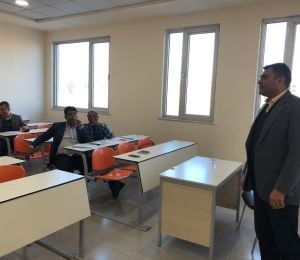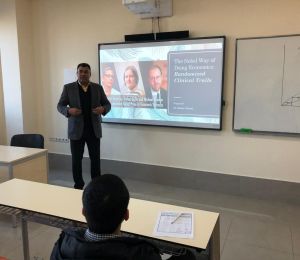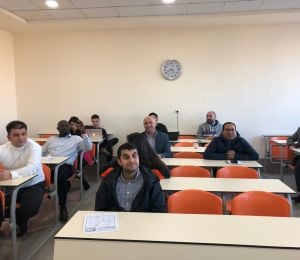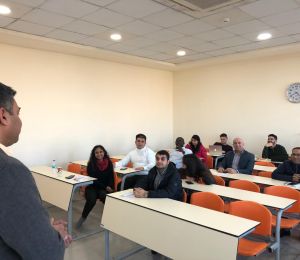Dr. Waqar Ahmad, Asstt. Professor of Economics, Business, and Management, Faculty of Administrative Sciences and Economics presented the work of Prof. Abhijeet Banerjee a Nobel prize winner in 2019 with his spouse Prof. Ester Duflo and partner Prof. Michel Kremer that how economics can give you a clear picture to elevate poverty from the world through randomized control trails.
Prof. Banrjee focused on his research from the beginning and formed Abdul Latif Jameel Poverty Action Lab (J-Pal) in 2003 to eliminate poverty so that peoples can live a good and healthy life in this world. Hence, a primary concern about randomized control trials is that policies are implemented strategically; policies that actually enhance growth may appear to do the opposite if governments implement them to mitigate a recession. Another concern is aggregation. Country-level outcomes are the result of decisions undertaken by individuals, households, firms, and governments. Correctly identifying the effects of a policy change requires understanding and measuring the behaviour of each of those agents. He also highlighted his book Poor Economics which is based on a different model and approaches about S-shaped Curve and L-Shaped Curve which explained the policy of the rich is rich and poor is poor and also about the poverty trap.
The economics Nobel committee gave due recognition to an important step in the right direction, but it is incumbent on the rest of us in the field of economics to build on that innovation with new creativity and rigor to address the valid concerns raised by the critics of this movement.
The faculty members, who are present the seminar on The Nobel Way to Economics as attendees, raised the queries were well-received by the presenter Dr Waqar Ahmad.












